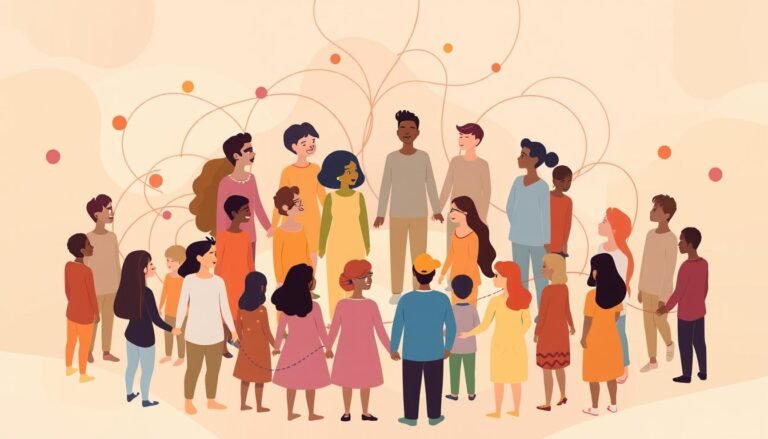Understanding Complicated Grief: Healing & Support
Have you ever wondered why some people seem stuck in their grief long after others have moved on? This lingering sorrow, known as complicated grief, affects a lot of people. In fact, up to 10-20% of those who experience a loss may find themselves grappling with this intense, prolonged form of mourning.
Complicated grief, also referred to as prolonged grief disorder, goes beyond the typical grieving process. It’s a persistent state of yearning and sadness that can last for years. This profoundly impacts daily life and relationships. While it’s a common misconception that time heals all wounds, for those experiencing complicated grief, time seems to stand still.
Unresolved mourning doesn’t discriminate, but certain factors can increase its likelihood. Women and older adults are more susceptible to complicated grief. Unexpected losses, violent deaths, or the loss of a child can also trigger this condition. Without proper support, it can lead to severe mental health issues, including depression and suicidal thoughts.
The good news? Help is available. Complicated Grief Treatment (CGT) has shown remarkable success, helping two out of three people overcome their prolonged grief. This specialized approach outperforms other treatments, offering hope to those trapped in the cycle of unresolved loss.
What is Complicated Grief and Its Impact
Complicated grief, also known as Persistent Complex Bereavement Disorder, affects about 7% of older adults who have lost someone. It’s different from normal grief because it lasts longer. It causes deep sadness and makes it hard to live daily life.
Defining Prolonged Grief Disorder
Prolonged Grief Disorder makes it hard to get over a loss. Symptoms are severe and last for more than 12 months after someone dies. This is especially tough for older adults, as they often lose someone within 2.5 years.
How Complicated Grief Differs from Normal Grieving
Unlike normal grief, complicated grief doesn’t fade away. It’s filled with constant longing and deep sadness. This can make it hard to heal and can affect your overall happiness.
| Normal Grief | Complicated Grief |
|---|---|
| Decreases over time | Persists beyond 12 months |
| Gradual return to daily activities | Continued disruption of daily life |
| Memories bring comfort | Memories cause intense distress |
Impact on Daily Life and Relationships
Complicated grief can really affect your daily life. It might make you feel lonely, depressed, and even hurt your health. You might lose weight, get sick more often, or have trouble doing things you used to do easily.
It can also hurt your relationships. You might feel less happy with life and feel more alone. This is because it’s hard to connect with others when you’re still grieving deeply.
When someone dies in a traumatic way, like by suicide, up to 80% of those left behind want help. This shows how important it is to recognize and treat complicated grief. It helps people heal and find support.
Signs and Symptoms of Complicated Grief
Pathological grief, or complicated grief, shows through many signs that last long after a loss. People with this condition feel intense sorrow and miss their loved ones deeply. This can really affect their daily life and how they connect with others.
- Difficulty accepting the death
- Inability to enjoy life or recall positive memories
- Feeling numb or detached from others
- Bitterness about the loss
- A sense that life lacks meaning
These symptoms usually last more than a year after the loss. Studies say 7-10% of adults who have lost someone may face prolonged grief disorder. For kids and teens, 5-10% might get depression, PTSD, or prolonged grief disorder after losing someone close.
Those with pathological grief often find it hard to do everyday tasks. They might pull back from social events. In extreme cases, they might even think about suicide. It’s important to notice these signs and get help if grief problems don’t go away.
“Grief is like the ocean; it comes on waves ebbing and flowing. Sometimes the water is calm, and sometimes it is overwhelming. All we can do is learn to swim.” – Vicki Harrison
Knowing these symptoms helps us spot and deal with complicated grief. If you or someone you know shows these signs, it’s a good idea to talk to a mental health expert. They can offer support and advice.
Risk Factors and Common Triggers
It’s important to know who might need more help after losing someone. Some personal and environmental factors can make it harder to deal with grief. This can lead to depression and chronic sorrow.
Personal and Environmental Risk Factors
Age and gender are big factors in complicated grief. Over 25% of older adults face this condition, compared to 5-7% of everyone else. Women, especially after menopause, are more likely to experience grief-related heart problems like Takotsubo cardiomyopathy.
Traumatic Loss Circumstances
Experiencing a traumatic loss can make grief worse. Sudden deaths, accidents, and murders can cause intense grief. These situations often make it hard to accept the loss, making grief more complicated.
Pre-existing Mental Health Conditions
People with mental health issues are more at risk for complicated grief. Studies show they often have anxiety disorders like PTSD and panic disorder. Also, those with insecure attachment styles tend to have more grief symptoms.
| Risk Factor | Impact on Complicated Grief |
|---|---|
| Age (Older Adults) | 25% experience complicated grief |
| Gender (Women) | 90% of Takotsubo cardiomyopathy cases |
| Traumatic Loss | Significantly increases risk |
| Pre-existing Mental Health | Higher comorbidity with anxiety disorders |
Distinguishing Between Depression, PTSD, and Complicated Grief
Grief complications can be hard to spot. They often mix with other mental health issues like depression and PTSD. Since the 1980s, experts have been studying these to understand their unique traits.
In 2009, researchers agreed on criteria for prolonged grief disorder. This helped tell it apart from normal grieving. Studies show that depression involves negative thoughts about oneself and the world. Complicated grief, on the other hand, focuses on the loss itself. PTSD, first added to the DSM-III in 1980, centers on fear of future danger.
A 2021 study compared prolonged grief disorder and grief-related PTSD. It found that PTSD might make people relive the traumatic loss and avoid reminders. Those with complicated grief struggle to move forward without their loved one. Both conditions can occur together, making diagnosis challenging.
Treatment options vary based on the specific condition. For bereavement-related depression and PTSD, cognitive behavioral therapy has shown promise. Research from 2023 suggests using similar methods for complicated grief. The key is recognizing the unique aspects of each condition to provide the most effective support.
Source Links
- Complicated grief – Symptoms and causes
- Complicated Grief | Fact Sheet – ABCT – Association for Behavioral and Cognitive Therapies
- Bereavement and Complicated Grief – PMC
- Complicated grief – Diagnosis and treatment
- Prolonged Grief Disorder
- What is complicated grief? Symptoms and treatment
- Complicated Grief: Risk Factors, Interventions, and Resources for Oncology Nurses
- Grief Reaction and Prolonged Grief Disorder – StatPearls
- Complicated grief | Cruse Bereavement Support
- Diagnostic and clinical considerations in prolonged grief disorder
- PTSD and Grief: Is There a Connection?








